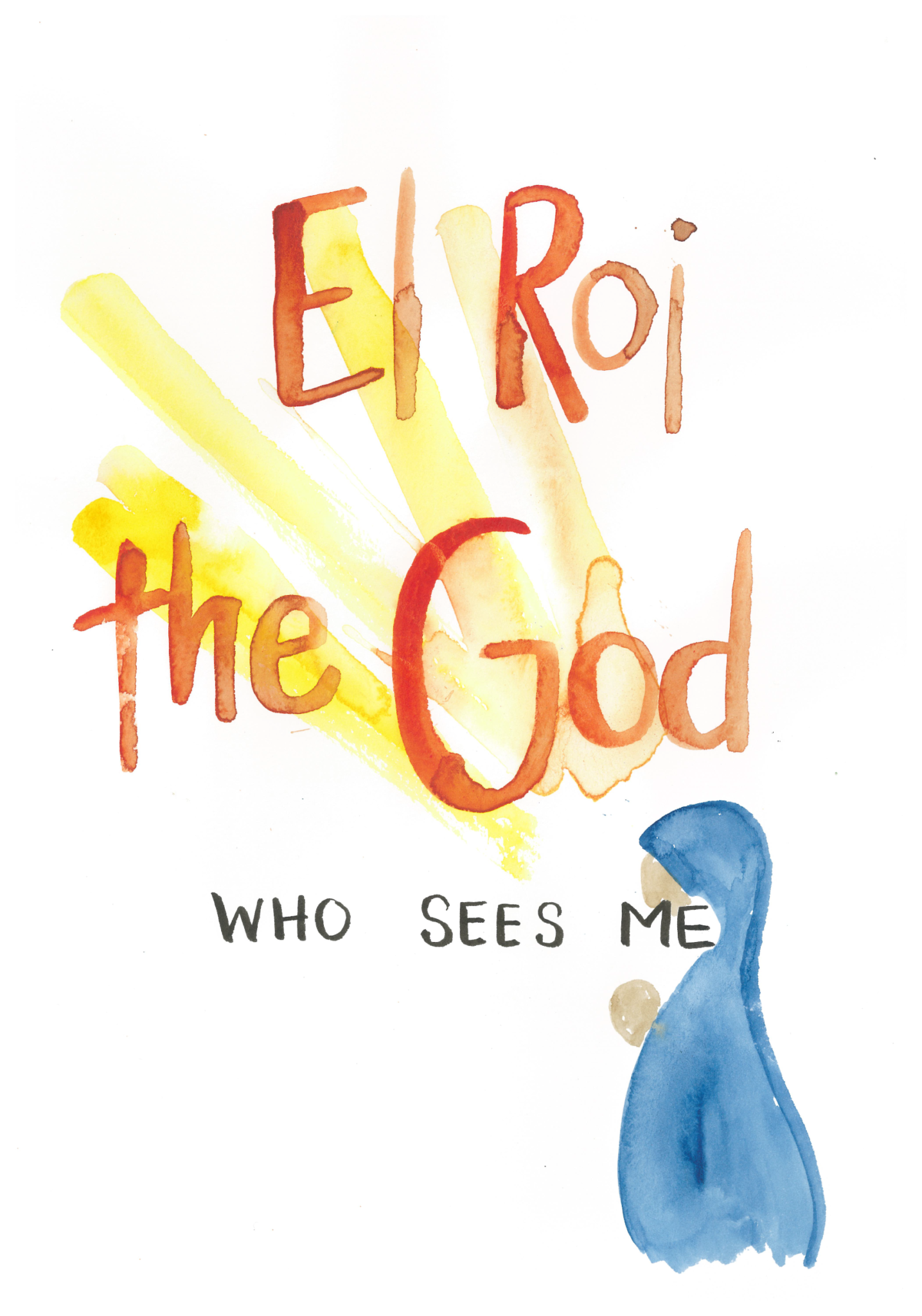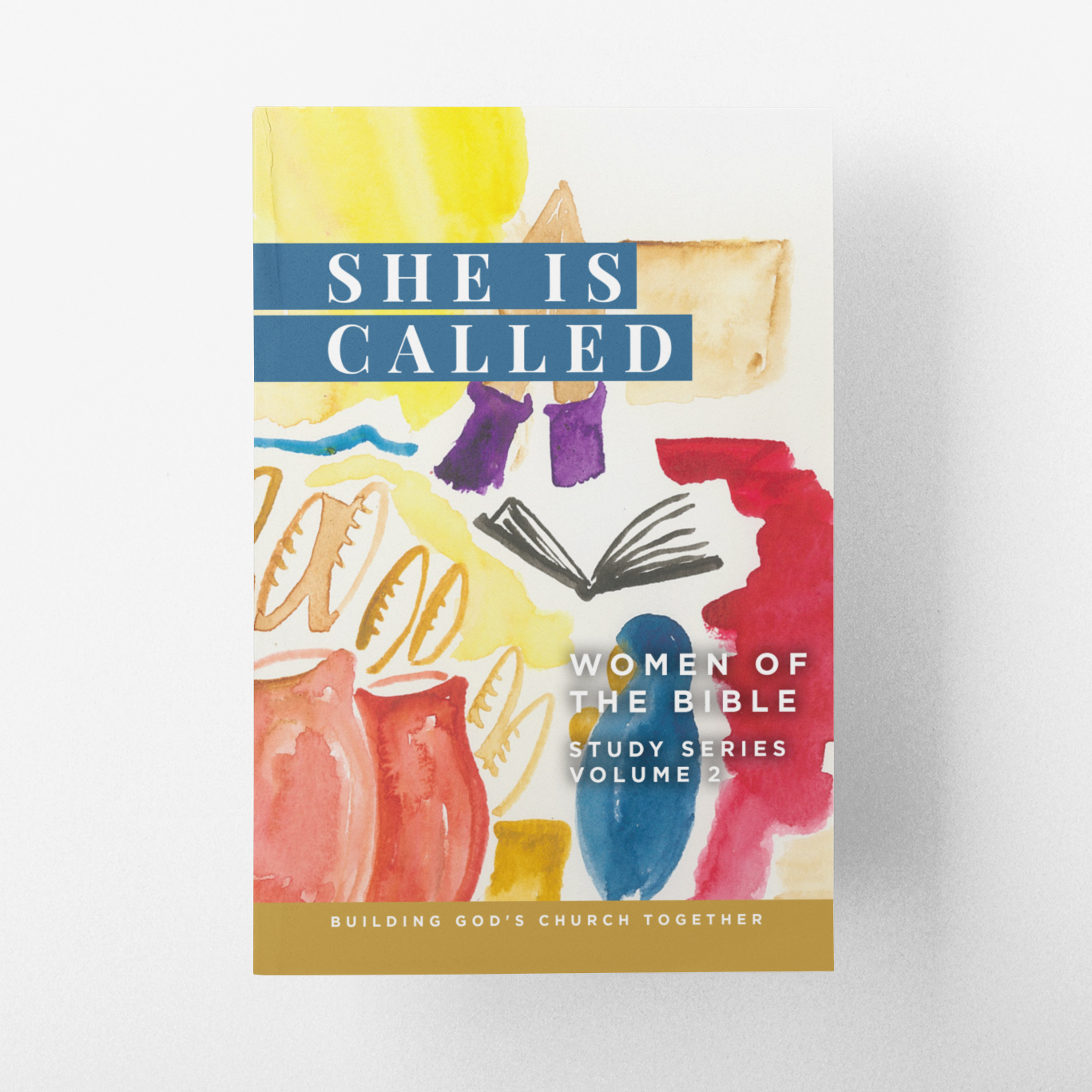The powerful story of Hagar in the Bible underscores how messy and complex God’s work in history really is. As people of faith, we believe that God answers prayer and keeps his promises, but this story will shake us out of simplistic notions of God’s call, God’s promises, and God’s faithfulness. Hagar is not just a supporting character in the story of Abraham and Sarah. She is not just the mother of Ishmael. Looking at Genesis 16 and 21 through Hagar’s eyes reveals that her story is Israel’s story. And it has a lot to teach us about how God shows up in our own stories.

Prayer
Lord, you drew near to Hagar in the wilderness, and you heard her child’s cries. As we draw near to you in this study, we ask you to hear the cries of our hearts. Quiet us and hold us in your loving embrace so that we might hear the gentle whispers of your Holy Spirit in our lives. Amen.
Key Scripture
“And God heard the voice of the boy; and the angel of God called to Hagar from heaven, and said to her, ‘What troubles you, Hagar? Do not be afraid; for God has heard the voice of the boy where he is. Come, lift up the boy and hold him fast with your hand, for I will make a great nation of him.’ Then God opened her eyes and she saw a well of water. She went, and filled the skin with water, and gave the boy a drink.” – Genesis 21:17-19
Introduction to Hagar in the Bible
The story of Hagar is a powerful story of exodus and struggle and of how God meets us in the midst of what we are going through. Yet, we often pay more attention to the story of Abraham and Sarah and the fulfillment of God’s promise to make Abraham the father of many nations. Within Abraham and Sarah’s story, we discover the faith and perseverance of Hagar, a woman who was pulled in and then cast out into the wilderness by impatient, jealous, and imperfect people.
Hagar shows us that even when we wander in wilderness places, even when life circumstances and systems of power push us down and toss us out, God is drawing near to us. In this Bible study, we will be encouraged to look for God in the rough places and to find the assurance that we, too, can encounter the God who sees us.
Digging Deeper: Hagar’s Journey
To understand Hagar’s journey, it is helpful to examine the broader narrative of Abraham and Sarah. God promised Abraham that he would become the father of a great nation. But as the story of the promise’s fulfillment unfolds, we encounter many other characters whose lives intersect with Abraham’s and whose stories are inextricably linked to the promise—for better or for worse. Their experiences—like the stories of the people of God throughout the ages—were often terribly messy and, at times, even miserable.
In Hollywood films, God works miracles in ways that are dramatic and soul-stirring. But in the messy reality of our lives, God’s miracles often involve patient suffering, waiting, and uncertainty. So it was for Abraham and Sarah; and so it was for Hagar.
As the story of God’s promise to Abraham meets Sarah’s pain and longing for a child, Sarah’s yearning and impatience pulls Hagar into that story of the promise. The ramifications of Sarah’s decision would have long-lasting consequences for Hagar.
Hagar and Sarah
In the beginning of the story, we might feel sorry for Sarah. She was dragged halfway across the Middle East because her husband was driven to pursue a vision that God had revealed only to him. We might empathize with Sarah’s agonizing situation, still childless years after her husband first heard God’s promise to make him the father of many nations.
It was not uncommon in biblical times for people of power or status to seek children through their servants (the story of the feuding sisters Rachel and Leah, for example). Sarah suggests that Abraham sleep with her Egyptian slave girl Hagar to secure an heir. Once Hagar conceives, Hagar (perhaps understandably) looks down on her mistress Sarah, who later comes to regret the entire strategy. Sarah complains bitterly to Abraham, and Abraham—who comes off like a wave tossed about by the stormy seas of Sarah’s jealousy in this tale—abandons poor Hagar to the wrath of his disaffected wife.
The pregnant Hagar, subjected to Sarah’s cruelty, runs away to the wilderness. She runs from humiliation and oppression into certain death. An angel of the Lord meets her in the wilderness and tells her to return and submit to Sarah. God assures her that she, too, will be the mother of a great nation. In response, Hagar becomes the only character in the Bible to name God: El Roi, “the God who sees me” (Genesis 16:13).
Fast forward to our story in Genesis 21, and Hagar is sent away a second time to die in the wilderness, this time with her young child, Ishmael. Though she is met and saved by an angel again, this time her exile is permanent.
Hagar’s story is Israel’s story. She is a slave, just as the children of Israel had been slaves in Egypt. Yet, in this story, Hagar was an Egyptian woman enslaved by an Israelite taskmaster. Consider what God might be saying to us through the irony of flipping these power dynamics. Hagar becomes a threat to her mistress once she delivers a son, just as Israel became a threat to Pharaoh when the people grew in number. Hagar suffered abuse at the hands of Sarah and Abraham, just as Israel faced abuse at the hands of its Egyptian taskmasters. And just as the Israelites ran away from their bondage in Egypt, so Hagar ran away from the cruelty of her mistress. Hagar’s story is an exodus story.
She Is Called and We Are Called
Hagar’s story is not an incidental story that interrupts the story of Abraham and Sarah. Hagar’s story is Israel’s story. Just as Moses met God beyond the wilderness in the glory of the burning bush, so Hagar met God in the wilderness through the glory of a miraculous well. God promises Abraham and Sarah that their son will be a great nation, and God tells Hagar that her son will be a great nation as well. Hagar’s story is a story of exile and a story of meeting God in the midst of her pain and abandonment. Her experience living in a foreign land was both agonizing and clarifying. Hagar and her son, Ishmael, survive, adapt, and meet God in a place of painful endurance, just as Israel did in Babylon.
This story shakes us out of simplistic notions about God’s call, God’s promises, and God’s faithfulness. The God of Israel works through all the complex mess of human history, through the lives of deeply flawed and broken people who never seem to get things right.
There is no perfect person in all of the Bible’s stories. Every character in Genesis is as flawed as each one of us. Abraham and Sarah doubted God’s plan and promises. Hagar suffered sexual, physical, and emotional abuse at the hands of a man and woman who were bound to protect her and her child. At the same time, we can relate to Sarah and feel sorry for her. We pity Hagar. Perhaps we even feel sorry for Abraham as well. We recognize in this weird, strange story people who are, like us, deeply and irrevocably human. They are us. All of us.
In the story of Hagar, we see both Israel’s story and our own story. Both Israel and the nations share a common destiny as children created, sustained, loved, and ultimately rescued by the same God. The people of the covenant are representative of all humanity. Wherever we might be found in our own wilderness stories, God is there with us, sustaining us, loving us, and rescuing us.
Conclusion
Who among us has not doubted God’s promises? Who among us has not felt contempt for another person or suffered in some seemingly hopeless circumstance?
Hagar, a non-Israelite, a woman with no power or status, is the first person in Scripture to be visited by an angel and the only person in Scripture to give God a name—El Roi, “the God who sees me.” In the midst of her pain and struggle, Hagar receives God’s blessing and promises.
This is all good news for those of us who are less than perfect, who wander in desert places, who weep over the consequences of our own decisions, and who are victims of abuse or rejection. It is among those such as Hagar that Jesus is to be found, ready to meet us at the place of despair when it seems that God is absent or that God’s promises are false. God comes to us in wilderness places. Hagar, as much as Abraham and Sarah, is a model of faith that we can learn from. She shows us where to find God.
Discussion Questions
- Think of a time that felt like a wilderness time in your life. How did God show up for you?
- As you think about the relationship between Abraham, Sarah, and Hagar, what thoughts and emotions rise to the surface?
- What surprised you in this Bible study session?
- What do you hear the Spirit saying to you/your family/your church/your community?
Rev. Ming Chen Lo Rohrer (Grace) is pastor of the Taiwanese Presbyterian Church of Northern Jersey in Livingston, New Jersey. She holds theological degrees from Taiwan Theological Seminary, Fu Jen University, and University of Dubuque Seminary. She is passionate about God’s ministry of peace and reconciliation, and the freedom and joy of simplicity. Rev. Rohrer serves on the RCA Women’s Transformation and Leadership Guiding Coalition and on the RCA’s Council for Pacific and Asian American Ministries executive committee. She is also a member of the Board of Trustees of New Brunswick Theological Seminary in New Brunswick, New Jersey.
Continue this Bible study as a book
Get your copy of the She Is Called Women of the Bible Study Vol. 2

This Bible study is from the second book in the Women of the Bible Study Series. Get the book to discover how women like Mary and Martha, Abigail, and Junia embraced God’s call for their lives.